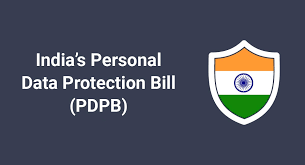Cyber Attacks: Understanding the Threats and How to Protect Yourself
In today's digital age, cyber attacks have become an increasingly significant threat to individuals and organizations worldwide. Cybercriminals are using sophisticated techniques to steal sensitive information, disrupt businesses, and cause significant financial damage. In this article, we will explore the different types of cyber attacks, their impact, and how you can protect yourself from them.
What are cyber attacks?
A cyber attack is an attempt by cybercriminals to exploit vulnerabilities in computer systems or networks to steal data, install malware, or disrupt operations. Cyber attacks can take many forms, including phishing attacks, ransomware attacks, DDoS (Distributed Denial of Service) attacks, and hacking attacks.
Phishing attacks: Phishing attacks are a type of social engineering attack that involves tricking users into giving away sensitive information, such as passwords or credit card numbers. Cybercriminals will send out emails or messages that appear to be from a legitimate source, such as a bank or social media site, and ask users to click on a link or enter their login credentials.
Ransomware attacks: Ransomware attacks involve the installation of malware that encrypts files on a victim's computer or network. Cybercriminals then demand payment in exchange for the decryption key that will unlock the files. Ransomware attacks can be particularly damaging to businesses, as they can disrupt operations and cause significant financial losses.
DDoS attacks: DDoS attacks involve overwhelming a website or network with traffic to the point that it becomes unavailable. Cybercriminals use networks of compromised computers, known as botnets, to launch DDoS attacks on targeted websites or networks.
Hacking attacks: Hacking attacks involve gaining unauthorized access to a computer system or network. Cybercriminals use various methods to exploit vulnerabilities in systems, such as SQL injection attacks or brute force attacks, to gain access to sensitive information or control of the system.
What is the impact of cyber attacks?
Cyber attacks can have a significant impact on individuals and organizations. They can result in the theft of sensitive data, financial losses, reputational damage, and disruptions to operations. In some cases, cyber attacks can even cause physical harm, such as in the case of attacks on critical infrastructure or medical devices.
For businesses, the impact of a cyber attack can be particularly severe. Cyber attacks can result in the loss of intellectual property, the disruption of supply chains, and the loss of customer trust. In some cases, the financial impact of a cyber attack can be so severe that it can lead to bankruptcy.
How can you protect yourself from cyber attacks?
There are several steps you can take to protect yourself from cyber attacks:
Keep your software up to date: Make sure that your computer's operating system and software are up to date with the latest security patches. This will help to prevent cybercriminals from exploiting known vulnerabilities.
Use strong passwords: Use strong, unique passwords for each of your online accounts. Avoid using common passwords or using the same password for multiple accounts.
Be wary of suspicious emails: Be cautious when opening emails or messages from unknown senders. Do not click on links or download attachments unless you are sure they are legitimate.
Use antivirus software: Install antivirus software on your computer to help protect against malware and viruses.
Enable two-factor authentication: Enable two-factor authentication for your online accounts to add an extra layer of security.
Backup your data: Regularly back up your important data to an external hard drive or cloud storage service. This will help to protect against data loss in the event of a cyber attack.


Comments
Post a Comment